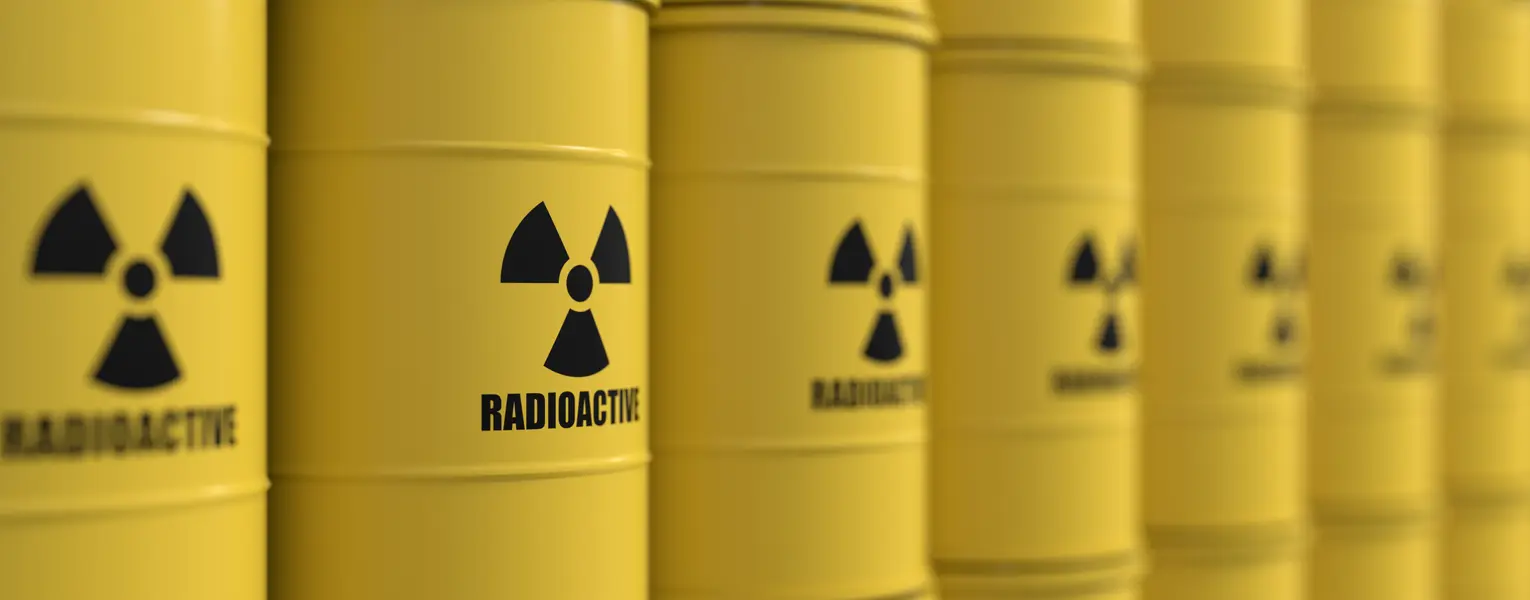Radioactive materials and constituents are understood through radiochemistry. To meet growing concerns about the radioactive levels in mixed wastes and other types of samples, we have a dedicated facility to identify and quantify more than 400 isotopes. With a Radioactive Materials License issued by the Texas Department of Public Health, we can possess, use, and store any radioisotope (atomic numbers 1 through 110) in any physical form, as long as the total activity of the sample does not exceed 1 millicurie per gram. This unique, open-ended license allows SwRI to receive many samples that ordinary laboratories cannot handle. We provide environmental analysis, radioactive tracer studies, nuclear medicinal analysis, and method development.
Radiochemical Analysis Services
Alpha Spectrometry
This analysis identifies and measures alpha particles emitted by radionuclides during decay.
- Actinides including Isotopes of Americium, Curium, Plutonium, Neptunium, Thorium, and Uranium
- Isotopes of Radium and Polonium
Gamma Spectrometry
This technique identifies and quantifies gamma-emitting radionuclides.
- Cesium 134, Cesium 137 test, Cobalt 58, Cobalt 60, Manganese 54, Zinc 65, Tin 113, and Chromium 51
- Americium 241 and Uranium 238 daughters
- Nickel 59
Liquid Scintillation Counting
This analysis quantitates low energy beta particles emitted by radionuclides.
- Tritium, Carbon 14, and Technetium 99
- Iodine 129, Iron 55, and Nickel 63
Gas Flow Proportional Counting
This technique quantifies alpha and beta particles emitted by radionuclides.
- Gross Alpha and Gross Beta
- Lead 210, Strontium 89, and Strontium 90
Inductively Coupled Plasma – Mass Spectrometry (ICP-MS)
This instrumentation can measure most elements in the periodic table, including individual isotopes.
- Isotopic Ratio Analysis of Uranium and Plutonium Isotopes, including high precision Uranium 235 enrichment determinations
- Technetium 99
- Isotopes of Boron and Lithium
Radiochemical Analysis Applications
- Environmental Monitoring: water, soils, vegetation, biota, tissues, and air
- Ground Water Monitoring
- Waste Characterization
- Nuclear Fuel Cycle
- Mining and Geology
- Radioactive Waste Storage
- Nuclear Medicine
- Forensics


